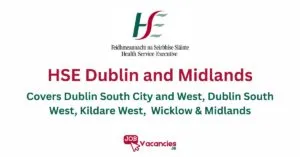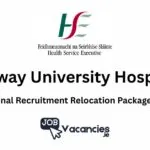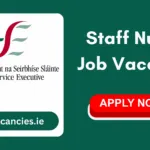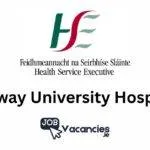Table of Contents
- Table of Contents
- Introduction
- Understanding the Irish Job Market
- Key Growth Sectors
- Regional Variations
- Skills in Demand
- Self-Assessment and Goal Setting
- Conducting a Skills Audit
- Values and Motivations
- Setting SMART Career Goals
- Creating Your Personal Development Plan
- Education and Upskilling Opportunities
- Formal Education Pathways
- Industry Certifications
- Government-Supported Initiatives
- Self-Directed Learning
- Professional Networking in Ireland
- Understanding the Irish Networking Landscape
- Key Networking Channels
- Effective Networking Strategies
- Finding Mentorship and Guidance
- Types of Mentoring Relationships
- Finding a Mentor in Ireland
- Making the Most of Mentoring Relationships
- Industry-Specific Development Paths
- Technology
- Financial Services
- Pharmaceuticals and Life Sciences
- Professional Services
- Building Your Digital Presence
- LinkedIn Optimization
- Personal Branding Beyond LinkedIn
- Digital Reputation Management
- Navigating Career Transitions
- Changing Industries
- Returning to Work After a Break
- Moving from Specialist to Leadership Roles
- Advancement Strategies Within Organizations
- Understanding Advancement Pathways
- Performance Excellence
- Visibility and Recognition
- Navigating Organizational Politics
- Advancement Conversations
- Work-Life Integration for Sustainable Growth
- From Balance to Integration
- Sustainable Career Planning
- Leveraging Irish Workplace Rights and Benefits
- Negotiating for Work-Life Integration
- Technology Management
- Strategies for International Professionals
- Understanding Irish Business Culture
- Qualification Recognition and Adaptation
- Building a Local Network
- Language and Communication
- Future Trends in Career Development
- Hybrid and Remote Work Evolution
- Skills Transformation
- Sustainability and Green Careers
- Portfolio Careers and the Gig Economy
- Demographic Shifts
- Conclusion
- Related Posts
Career Development Strategies in Ireland: A Comprehensive Guide
Reading time: 12 minutes
In today’s dynamic Irish job market, strategic career development is essential for professional growth and long-term success. This guide explores effective strategies for career advancement in Ireland, from industry-specific upskilling to networking approaches, helping you create a roadmap for your professional journey in Ireland’s evolving economy.
Introduction
Career development in Ireland has transformed significantly in recent years, shaped by economic growth, technological advancement, and changing workplace dynamics. No longer following a linear path, modern careers in Ireland often involve multiple transitions, continuous learning, and strategic positioning within evolving industries.
For professionals at any stage—whether you’re starting your career, seeking advancement, or contemplating a change—understanding how to navigate the Irish professional landscape is crucial. Ireland’s unique economic environment, with its strong presence of multinational corporations alongside growing indigenous businesses, offers diverse opportunities but also requires specific approaches to career development.
This guide aims to provide you with practical, actionable strategies for career growth in Ireland’s competitive job market. We’ll explore how to assess your current position, identify opportunities aligned with market trends, develop relevant skills, build meaningful professional relationships, and create a sustainable career advancement plan that balances ambition with wellbeing.
Pro Tip
The most successful career development plans in Ireland combine formal learning with relationship building. Research shows that professionals who dedicate time to both structured upskilling and strategic networking advance 40% faster than those who focus on just one approach.
Understanding the Irish Job Market
Before developing your career strategy, it’s essential to understand the current state and trajectory of the Irish job market. Ireland has one of Europe’s most dynamic economies, with particular strengths in several key sectors:
Key Growth Sectors
- Technology: Ireland has established itself as a European tech hub, hosting operations for global giants like Google, Facebook, and Apple, alongside a vibrant startup ecosystem. Roles in software development, cybersecurity, data analytics, and AI are in high demand.
- Pharmaceuticals and Life Sciences: With many of the world’s top pharmaceutical companies operating in Ireland, this sector offers opportunities in research, manufacturing, quality assurance, and regulatory affairs.
- Financial Services: Post-Brexit, Ireland has strengthened its position as a financial services center, with growing demand for expertise in fintech, compliance, risk management, and sustainable finance.
- Sustainable Energy: As Ireland pursues ambitious climate goals, the renewable energy sector is expanding rapidly, creating opportunities in engineering, project management, and green technology.
- Healthcare: An aging population and healthcare innovation are driving demand for medical professionals, healthcare administrators, and specialists in digital health solutions.
Regional Variations
While Dublin remains the primary employment hub, significant growth is occurring in regional centers:
- Cork: Strong in pharmaceuticals, technology, and manufacturing
- Galway: Known for medical devices, technology, and tourism
- Limerick: Growing in technology, engineering, and financial services
- Waterford: Developing in pharmaceuticals, manufacturing, and shared services
Understanding these regional dynamics can be valuable when planning your career path, especially as remote work options expand the possibility of accessing Dublin-level opportunities while living in other parts of the country.
Skills in Demand
Across sectors, certain skill sets consistently appear in high demand:
- Technical Skills: Programming languages (Python, Java, JavaScript), data analysis, cloud computing, and cybersecurity
- Digital Literacy: Proficiency with digital tools, understanding of digital marketing, and ability to leverage technology for productivity
- Soft Skills: Communication, adaptability, critical thinking, and emotional intelligence
- Language Skills: Proficiency in languages beyond English (particularly German, French, Spanish, and Nordic languages) for multinational roles
- Regulatory Knowledge: Understanding of EU regulations, GDPR, and industry-specific compliance requirements
Market Insight
According to recent data from the Economic and Social Research Institute (ESRI), Ireland’s employment market is projected to grow by 3-4% annually over the next five years, with the strongest growth in technology (7%), healthcare (5%), and green economy sectors (8%). Understanding these projections can help you align your career development with areas of future opportunity.
Self-Assessment and Goal Setting
Effective career development begins with honest self-assessment and clear goal setting. This foundation ensures that your development activities align with your personal values, strengths, and aspirations.
Conducting a Skills Audit
Start by cataloging your current skills, categorizing them as:
- Technical Skills: Specific abilities related to your profession or industry
- Transferable Skills: Capabilities that add value across different roles and sectors
- Personal Attributes: Character traits that influence your work style and effectiveness
For each skill, assess your current proficiency level and its relevance to your target career path. This analysis will help identify development priorities.
Values and Motivations
Understanding what truly motivates you is crucial for sustainable career satisfaction. Consider:
- What type of work gives you energy rather than depletes it?
- What organizational cultures align with your personal values?
- How important are factors like autonomy, creativity, security, or social impact?
- What balance do you seek between professional achievement and personal life?
Setting SMART Career Goals
With self-awareness as your foundation, develop goals that are:
- Specific: Clearly defined outcomes (e.g., “Secure a senior project manager role in renewable energy” rather than “Get promoted”)
- Measurable: Criteria to track progress (e.g., “Complete PMP certification with distinction”)
- Achievable: Realistic given your current position and resources
- Relevant: Aligned with your values and long-term vision
- Time-bound: With defined timeframes (short-term: 1 year; medium-term: 2-3 years; long-term: 5+ years)
Pro Tip
Document your self-assessment and goals in a career development journal. Research shows that professionals who write down their goals and review them regularly are 42% more likely to achieve them. Schedule quarterly reviews to track progress and adjust your plans as needed.
Creating Your Personal Development Plan
Transform your goals into an actionable plan by:
- Breaking down each goal into specific development activities
- Identifying resources needed (time, funding, support)
- Setting milestones to track progress
- Anticipating potential obstacles and planning how to overcome them
- Establishing accountability mechanisms (mentor check-ins, peer support)
Your personal development plan should be a living document that evolves as you progress and as market conditions change.
Education and Upskilling Opportunities
Ireland offers a rich ecosystem of education and upskilling opportunities to support career development. The key is selecting options that provide the best return on investment for your specific goals.
Formal Education Pathways
For substantial career advancement or transitions, formal qualifications can be valuable:
- Postgraduate Degrees: Universities like Trinity College Dublin, UCD, and UCC offer specialized master’s programs aligned with industry needs. Many provide part-time and online options for working professionals.
- Professional Diplomas: Shorter, focused programs that develop expertise in specific areas without the time commitment of a full degree.
- Executive Education: Business schools like the IMI and Smurfit offer executive programs designed for experienced professionals seeking to move into leadership roles.
Industry Certifications
In many sectors, recognized certifications can significantly enhance your marketability:
- Technology: AWS Certification, Microsoft Azure, Cisco CCNA, CompTIA Security+
- Project Management: PMP, PRINCE2, Scrum Master, Agile certifications
- Finance: CFA, ACCA, CIMA
- Marketing: Google Analytics, HubSpot Inbound Marketing, Digital Marketing Institute certifications
- Human Resources: CIPD qualifications
Government-Supported Initiatives
Ireland offers several government-backed programs to support workforce development:
- Springboard+: Provides free or heavily subsidized courses in areas of skills shortage for unemployed people and those looking to upskill
- Skillnet Ireland: Industry-led training networks offering subsidized, specialized training
- eCollege: Online learning platform offering free courses to job seekers
- SOLAS: Further education and apprenticeship programs across various trades and professions
Self-Directed Learning
For many skills, particularly in fast-evolving fields, self-directed learning can be highly effective:
- Online Platforms: Coursera, LinkedIn Learning, Udemy, and edX offer courses from leading universities and industry experts
- Coding Bootcamps: Intensive programs like Code Institute and Software Design Academy provide immersive technical training
- Industry Webinars and Events: Often free or low-cost ways to stay current with industry trends
- Professional Reading: Journals, books, and industry publications
Funding Your Development
Several options exist to finance your upskilling:
- Tax Relief: Revenue’s tuition fees tax relief for approved courses
- Employer Support: Many Irish companies offer education assistance or dedicated learning budgets
- Professional Development Loans: Some credit unions offer favorable terms for education
- Professional Body Grants: Many professional associations offer member grants for continuing education
Pro Tip
Before investing in any education program, speak with professionals already in your target role or industry. Ask which qualifications they value most and which institutions or platforms have the strongest reputation. This research can prevent costly investments in credentials that may not deliver the expected career benefits.
Professional Networking in Ireland
In Ireland’s relationship-oriented business culture, effective networking is often the difference between a good career and a great one. Building and maintaining a strong professional network requires strategic effort but yields substantial returns.
Understanding the Irish Networking Landscape
Irish professional networking has some distinctive characteristics:
- A blend of formality and friendliness, with relationship-building often happening through casual conversation
- Strong emphasis on personal connections and mutual acquaintances
- Value placed on authenticity and genuine interest rather than transactional approaches
- Importance of both industry-specific networks and broader professional communities
Key Networking Channels
Professional Associations and Industry Bodies
These organizations offer structured networking opportunities and professional development:
- Engineers Ireland
- Marketing Institute of Ireland
- Irish Computer Society
- Chartered Accountants Ireland
- Irish Medical Organisation
- HR and Leadership Institute
Most professional bodies host regular events, maintain member directories, and offer mentoring programs.
Business Networks
These broader networks connect professionals across industries:
- Chambers of Commerce (Dublin, Cork, Galway, etc.)
- Business Network International (BNI) chapters
- Network Ireland (particularly strong for women professionals)
- Irish International Business Network
Industry Events and Conferences
Ireland hosts numerous high-quality industry gatherings:
- Dublin Tech Summit
- FutureScope
- National Manufacturing Conference
- Irish Healthcare Awards
- National HR Conference
Digital Networking
Online platforms complement in-person networking:
- LinkedIn: Particularly important in the Irish context, with high engagement rates
- Twitter: Valuable for industry conversations and thought leadership
- Meetup.com: Hosts numerous professional interest groups across Ireland
- Slack Communities: Industry-specific channels for ongoing conversation
Effective Networking Strategies
Preparation and Approach
- Research attendees and speakers before events
- Prepare a concise, engaging personal introduction
- Set specific goals for each networking opportunity
- Focus on how you can help others, not just what you need
Building Meaningful Connections
- Ask thoughtful questions and practice active listening
- Look for genuine common interests beyond professional matters
- Be specific when discussing potential ways to collaborate
- Follow up promptly after initial meetings
Maintaining Your Network
- Schedule regular check-ins with key contacts
- Share valuable information and opportunities
- Acknowledge and celebrate others’ achievements
- Offer support before asking for favors
Pro Tip
In Ireland, some of the most valuable networking happens in informal settings. Consider joining industry-related sports clubs, volunteering for professional committees, or participating in community initiatives where you’ll meet colleagues in more relaxed environments. These connections often prove stronger than those made in purely professional contexts.
Finding Mentorship and Guidance
Mentorship can accelerate your career development by providing personalized guidance, expanding your perspective, and helping you navigate organizational politics. In Ireland, both formal and informal mentoring relationships can be valuable assets in your professional journey.
Types of Mentoring Relationships
- Traditional Mentoring: A more experienced professional provides guidance to a less experienced colleague
- Peer Mentoring: Colleagues at similar career stages support each other’s development
- Reverse Mentoring: Junior staff members share insights (often technology-related) with senior colleagues
- Group Mentoring: One mentor works with multiple mentees in a collaborative setting
- Situational Mentoring: Short-term guidance focused on specific challenges or transitions
Finding a Mentor in Ireland
Formal Mentoring Programs
Many organizations and professional bodies offer structured mentoring:
- Workplace Programs: Many larger Irish employers and multinationals have internal mentoring initiatives
- Professional Associations: Most industry bodies offer mentoring schemes for members
- Enterprise Ireland: Provides mentoring for entrepreneurs and business leaders
- 30% Club: Cross-company mentoring program focused on gender balance in leadership
- University Alumni Networks: Many Irish universities connect graduates through mentoring programs
Developing Informal Mentoring Relationships
When formal programs aren’t available, consider these approaches:
- Identify potential mentors whose career path or expertise aligns with your goals
- Start with specific, time-limited requests rather than asking for ongoing mentorship immediately
- Demonstrate your commitment to growth by implementing advice and providing updates
- Be respectful of their time and express genuine appreciation for their guidance
- Look beyond your immediate workplace—industry events, professional networks, and even LinkedIn can connect you with potential mentors
Making the Most of Mentoring Relationships
Preparation
- Define specific goals for the mentoring relationship
- Come to meetings with prepared questions and topics
- Share relevant background information in advance
- Be open about your challenges and development needs
Engagement
- Listen actively and take notes during discussions
- Ask for specific examples and scenarios, not just general advice
- Seek feedback on your ideas and approaches
- Discuss both successes and setbacks
Implementation and Follow-up
- Act on the guidance you receive
- Report back on outcomes and lessons learned
- Express specific appreciation for valuable advice
- Respect boundaries and agreed communication cadence
Consider a Mentoring Portfolio
Rather than seeking a single mentor who can guide all aspects of your development, consider building a “mentoring portfolio”—a diverse group of advisors who each offer expertise in different areas. For example, you might have one mentor for technical skills, another for leadership development, and a third for industry-specific knowledge.
Pro Tip
The best mentoring relationships are reciprocal. Even as a mentee, look for opportunities to provide value to your mentor—whether through sharing insights from your generation or field, making relevant introductions, or supporting their initiatives. This approach transforms the relationship from a one-way transfer of knowledge to a mutually beneficial partnership.
Industry-Specific Development Paths
Career development strategies vary significantly across industries. Here’s guidance for some of Ireland’s key sectors:
Technology
Ireland’s tech sector offers diverse career paths with strong growth potential.
Key Development Priorities
- Technical Depth: Continuous updating of programming languages and technical skills
- Specialization: Developing expertise in high-demand areas like cloud architecture, cybersecurity, or AI
- Business Acumen: Understanding how technology delivers business value
- Project Management: Agile methodologies and delivery frameworks
Recommended Resources
- Irish Computer Society membership and certifications
- Dublin Tech Summit and Web Summit for networking
- Technology Ireland ICT Skillnet for specialized training
- Open-source contribution for portfolio building
Financial Services
Ireland’s financial sector encompasses traditional banking, insurance, fintech, and international financial services.
Key Development Priorities
- Regulatory Knowledge: Understanding of EU financial regulations and compliance requirements
- Digital Transformation: Familiarity with fintech innovations and digital banking
- Risk Management: Developing expertise in financial risk assessment and mitigation
- Sustainable Finance: Growing area with increasing importance
Recommended Resources
- Professional qualifications: ACCA, CFA, QFA, or CIMA
- Financial Services Ireland events and networking
- FinTech & Payments Association of Ireland membership
- Sustainable Finance Ireland programs
Pharmaceuticals and Life Sciences
This sector offers diverse opportunities from research to manufacturing and regulatory affairs.
Key Development Priorities
- GMP and Quality Systems: Understanding of Good Manufacturing Practice and quality assurance
- Regulatory Affairs: Knowledge of EU and international pharmaceutical regulations
- Data Analysis: Ability to work with clinical and manufacturing data
- Project Management: Experience managing complex, regulated projects
Recommended Resources
- BioPharmaChem Ireland networking events
- ISPE (International Society for Pharmaceutical Engineering) membership
- Pharmachem Skillnet training programs
- NIBRT (National Institute for Bioprocessing Research and Training) courses
Professional Services
Accounting, consulting, legal, and other professional services follow structured career progression.
Key Development Priorities
- Client Relationship Management: Building and maintaining client trust
- Business Development: Contributing to practice growth
- Specialization: Developing recognized expertise in specific service areas
- Team Leadership: Managing and developing junior professionals
Recommended Resources
- Professional body membership (Law Society, Chartered Accountants Ireland, etc.)
- Management Consultants Association events
- Industry-specific continuing professional development
- Client sector knowledge development
Pro Tip
In many Irish industries, international experience is highly valued for senior roles. Consider seeking opportunities for short-term international assignments, cross-border projects, or global training programs within your organization. This experience can differentiate your profile when pursuing leadership positions.
Building Your Digital Presence
In today’s professional landscape, your digital presence is often the first impression you make on potential employers, clients, and collaborators. A strategic online presence can significantly enhance your career development in Ireland.
LinkedIn Optimization
LinkedIn is particularly important in the Irish professional context, with high usage rates across industries.
Profile Enhancement
- Use a professional, current photo and branded background image
- Craft a compelling headline that goes beyond your job title
- Write an engaging summary that highlights your unique value proposition
- Detail your experience with measurable achievements, not just responsibilities
- Include relevant skills and seek endorsements from colleagues
- Request thoughtful recommendations from supervisors and clients
Strategic Engagement
- Share industry insights and thoughtful commentary on relevant topics
- Engage with content from industry leaders and potential employers
- Participate in industry-specific LinkedIn groups
- Publish original articles demonstrating your expertise
- Use analytics to understand which content resonates with your network
Personal Branding Beyond LinkedIn
Depending on your industry and goals, consider expanding your digital footprint:
Content Creation
- Personal Blog or Website: Showcase your expertise and portfolio
- Guest Articles: Contribute to industry publications and platforms
- Podcasts and Webinars: Participate as a guest or host your own
- Video Content: Create tutorials, thought leadership pieces, or interviews
Platform Selection
Choose platforms based on your industry and audience:
- Twitter: Valuable for tech, media, and policy professionals
- GitHub: Essential for software developers to showcase code
- Behance/Dribbble: Portfolio platforms for designers
- Medium: Platform for longer-form articles across industries
- Industry-Specific Platforms: Such as ResearchGate for academics
Digital Reputation Management
Protect and enhance your professional image online:
- Regularly audit your digital footprint by searching your name
- Adjust privacy settings on personal social media accounts
- Address negative content through appropriate channels
- Set up Google Alerts for your name to monitor mentions
- Ensure consistency across platforms in how you present yourself
Content Strategy Framework
For maximum impact, structure your content creation around these principles:
- 80/20 Rule: 80% providing value to your audience, 20% promoting yourself
- Content Pillars: Identify 3-5 key themes aligned with your expertise
- Consistency: Regular posting schedule rather than sporadic activity
- Engagement: Respond to comments and foster conversation
- Measurement: Track which content generates the most engagement and opportunities
Pro Tip
In Ireland’s relatively small professional community, authentic engagement is more valuable than broadcasting. Rather than focusing solely on growing your follower count, prioritize meaningful interactions with key stakeholders in your industry. Thoughtful comments on others’ content often generate more professional opportunities than publishing your own posts.
Navigating Career Transitions
Career transitions—whether changing roles, industries, or returning after a break—require strategic planning and execution. The Irish job market offers flexibility for transitions, but successful navigation demands preparation.
Changing Industries
Ireland’s diverse economy provides opportunities for cross-industry moves, particularly in these pathways:
Strategic Approaches
- Skills Mapping: Identify transferable skills valued in your target industry
- Gap Analysis: Determine critical skills or knowledge you need to develop
- Bridge Roles: Consider intermediate positions that combine elements of both industries
- Industry Immersion: Join industry associations, attend events, and build relationships before applying
- Targeted Upskilling: Acquire certifications or qualifications specific to your target industry
Common Transition Pathways in Ireland
- Banking/Finance to Fintech
- Traditional IT to Cybersecurity or AI
- Pharmaceuticals to Medical Technology
- Traditional Marketing to Digital Marketing
- Corporate roles to Sustainability-focused positions
Returning to Work After a Break
Whether after parental leave, career breaks, or other circumstances, returning to the workforce requires specific strategies:
Preparation Strategies
- Update technical skills through refresher courses or certifications
- Reconnect with your professional network before beginning your job search
- Consider returnship programs offered by companies like Accenture, Vodafone, and Bank of Ireland
- Address gaps proactively in your CV and interviews, highlighting relevant activities during your break
- Consider part-time or project-based work as a transition strategy
Support Resources
- Women ReBOOT program for women returning to technology careers
- Skillnet Ireland’s RESUME program
- Career coaching services specializing in career returners
- Industry-specific refresher courses
Moving from Specialist to Leadership Roles
Transitioning from technical specialist to management requires developing new competencies:
Key Development Areas
- People Management: Developing skills in motivation, delegation, and performance management
- Strategic Thinking: Moving from tactical to strategic perspectives
- Business Acumen: Understanding financial management and business operations
- Communication: Adapting communication for different stakeholders
- Change Management: Leading teams through organizational changes
Development Pathways
- Leadership development programs (internal or external)
- Management qualifications (MBA, diplomas in management)
- Mentoring from experienced leaders
- Gradual responsibility expansion through project leadership
- Cross-functional assignments to broaden business understanding
Pro Tip
When making a significant career transition in Ireland, leverage the country’s strong networking culture. Informational interviews with professionals who have made similar transitions can provide invaluable insights and potentially open doors. Most Irish professionals are willing to share their experiences over a coffee if approached respectfully and with specific questions.
Advancement Strategies Within Organizations
Progressing within your current organization requires a strategic approach that combines performance excellence with organizational awareness and relationship building.
Understanding Advancement Pathways
Organizations in Ireland typically offer several progression routes:
- Traditional Vertical Advancement: Moving up the management hierarchy
- Technical Specialist Path: Increasing expertise and authority without management responsibilities
- Project Leadership: Leading increasingly complex and strategic initiatives
- Lateral Moves: Gaining breadth of experience across functions or business units
- International Assignments: Taking on roles in global operations (particularly relevant for multinational corporations)
Performance Excellence
The foundation of advancement is consistently strong performance:
Exceeding Expectations
- Clarify performance expectations with your manager
- Set personal standards that exceed minimum requirements
- Focus on high-impact activities that align with organizational priorities
- Develop metrics to quantify your contributions
- Document achievements and outcomes throughout the year
Skill Development
- Identify skills needed for your target role
- Create a development plan with your manager
- Utilize internal training resources and external opportunities
- Seek stretch assignments that develop new capabilities
- Request feedback on progress and areas for improvement
Visibility and Recognition
Ensuring your contributions are recognized by decision-makers:
Strategic Communication
- Provide regular updates to your manager on achievements and progress
- Contribute meaningfully in meetings and cross-functional projects
- Share knowledge and insights that benefit colleagues
- Develop presentation skills for effective communication
- Create visibility for your team’s accomplishments, not just your own
Relationship Building
- Develop relationships across departments and hierarchical levels
- Find mentors and sponsors who can advocate for your advancement
- Participate in company initiatives beyond your core responsibilities
- Attend company social events and team-building activities
- Support colleagues and build a reputation as a team player
Navigating Organizational Politics
Understanding the informal power structures and decision-making processes:
- Observe how decisions are made in your organization
- Identify key stakeholders and decision-makers for advancement
- Understand organizational values and how they translate to advancement criteria
- Build coalitions around initiatives that align with strategic priorities
- Maintain integrity while being politically savvy
Advancement Conversations
Proactively managing discussions about your career progression:
- Schedule regular career development discussions with your manager
- Clearly articulate your aspirations and desired timeline
- Ask for specific feedback on readiness for advancement
- Develop and present a business case for your promotion when appropriate
- Be prepared to negotiate terms when opportunities arise
Advancement in Multinational vs. Indigenous Companies
Advancement strategies may differ between multinational corporations and Irish indigenous companies:
- Multinationals: Often have structured promotion processes, global mobility opportunities, and formal talent management programs
- Indigenous Companies: May offer faster advancement, broader role scope, and more direct access to senior leadership, but potentially less structured development pathways
Understanding these differences can help you tailor your approach to your specific organizational context.
Pro Tip
In many Irish organizations, demonstrating that you’ve developed your successor can significantly enhance your promotion prospects. Managers are often reluctant to promote individuals whose departure would leave a critical gap. By mentoring and developing team members who could step into your role, you remove this potential obstacle to your advancement.
Work-Life Integration for Sustainable Growth
Sustainable career development requires balancing professional advancement with personal wellbeing. In Ireland, where work culture is evolving to emphasize balance, integrating career ambitions with life priorities is increasingly important.
From Balance to Integration
The concept of work-life balance is evolving toward work-life integration—a more holistic approach that recognizes the interconnectedness of professional and personal domains:
- Acknowledging that strict separation between work and personal life is often unrealistic
- Creating synergies between career development and personal growth
- Designing a career path that accommodates changing life priorities
- Leveraging flexibility to optimize both productivity and wellbeing
Sustainable Career Planning
Long-term Perspective
- View your career as a marathon rather than a sprint
- Plan for different life stages and changing priorities
- Consider potential career breaks or reduced intensity periods
- Build financial resilience to support career flexibility
- Develop transferable skills that maintain marketability through transitions
Energy Management
- Identify your peak productivity periods and align important work accordingly
- Recognize energy drains and implement mitigation strategies
- Build recovery periods into your schedule
- Develop routines that support physical and mental wellbeing
- Practice mindfulness and presence in both work and personal activities
Leveraging Irish Workplace Rights and Benefits
Ireland offers several legal protections and common benefits that support work-life integration:
- Flexible Working Requests: The right to request flexible working arrangements
- Parental Leave: Entitlements for parents to take time off for childcare
- Force Majeure Leave: Time off for urgent family matters
- Annual Leave: Minimum of 20 days plus public holidays
- Disconnection Rights: Emerging policies on the right to disconnect outside working hours
Understanding and utilizing these entitlements can support your career development while maintaining wellbeing.
Negotiating for Work-Life Integration
Proactively creating arrangements that support your needs:
- Research flexible working options before discussions with employers
- Present business benefits of flexible arrangements, not just personal needs
- Propose trial periods for new working arrangements
- Discuss expectations for availability and responsiveness
- Regularly review and adjust arrangements as needed
Technology Management
Using technology to enable rather than undermine work-life integration:
- Establish clear boundaries for digital availability
- Use technology tools to improve efficiency and reduce unnecessary work
- Practice digital detox periods to support mental wellbeing
- Communicate your connectivity expectations to colleagues
- Leverage productivity apps to streamline work processes
Pro Tip
When evaluating career opportunities in Ireland, look beyond salary and title to assess the organization’s culture around work-life integration. Research suggests that professionals who prioritize cultural fit when selecting employers report 31% higher job satisfaction and stay in roles 24% longer. Consider using informational interviews with current employees to gauge the reality of work-life practices before accepting positions.
Strategies for International Professionals
International professionals in Ireland face unique challenges and opportunities in career development. Whether you’ve recently relocated or are planning a move, these strategies can help you navigate the Irish professional landscape effectively.
Understanding Irish Business Culture
Irish workplace culture has distinctive characteristics that may differ from your home country:
- Relationship-Oriented: Business in Ireland often prioritizes relationship-building over immediate transactions
- Communication Style: Often indirect, with emphasis on politeness and avoiding confrontation
- Humor and Informality: Workplace interactions frequently include humor and casual conversation
- Hierarchy: Generally less formal than many European countries, but respect for seniority remains important
- Time Management: Somewhat flexible approach to punctuality in social contexts, though professional meetings typically start on time
Understanding these cultural nuances can help you integrate more effectively and build stronger professional relationships.
Qualification Recognition and Adaptation
- Research how your qualifications are recognized in Ireland through NARIC Ireland
- Consider additional certifications that are valued in the Irish context
- Highlight international experience as a strength while demonstrating understanding of local requirements
- Adapt your CV and interview style to Irish expectations (typically more detailed CVs than in some countries)
- Emphasize transferable skills and adaptability in your professional narrative
Building a Local Network
Developing professional connections is particularly important for international professionals:
- Join professional associations relevant to your field
- Attend networking events specifically for international professionals
- Consider volunteering for industry events or community initiatives
- Connect with alumni networks from your educational institutions
- Participate in expatriate professional groups (such as Network Ireland, American Chamber of Commerce, etc.)
- Engage with county-specific business networks in your region
Language and Communication
While English is widely spoken in Irish workplaces, there are nuances to consider:
- Familiarize yourself with Irish English expressions and idioms
- Be aware that direct feedback may be less common than in some cultures
- Understand the importance of storytelling and narrative in Irish communication
- Consider communication training if English is not your first language
- Learn to recognize when “that might be difficult” often means “no”
Pro Tip
Many international professionals find success by joining Irish sporting or cultural clubs outside of work. These social connections often lead to professional opportunities through Ireland’s strong referral culture. Even if you’re not interested in sports, consider community groups aligned with your interests as an alternative networking avenue.
Future Trends in Career Development
Understanding emerging trends in career development can help you position yourself advantageously in Ireland’s evolving job market. These key trends are likely to shape professional growth opportunities in the coming years:
Hybrid and Remote Work Evolution
The pandemic-accelerated shift to remote work continues to evolve:
- Hybrid models becoming standardized across many industries
- Location-independent roles opening opportunities for professionals outside Dublin
- Growing emphasis on digital collaboration skills
- Emergence of “work from anywhere” policies in progressive companies
- Development of virtual networking and mentoring approaches
These changes create both opportunities and challenges for career development, requiring new approaches to visibility, collaboration, and advancement.
Skills Transformation
The half-life of skills continues to shorten, particularly in technical fields:
- AI and Automation Integration: Growing need for professionals who can work alongside AI systems
- Human Skills Premium: Increasing value placed on uniquely human capabilities like creativity, empathy, and complex problem-solving
- Continuous Learning: Shift from periodic upskilling to continuous learning models
- Micro-credentials: Rise of shorter, targeted learning experiences over traditional degrees
- Cross-disciplinary Expertise: Growing demand for professionals who bridge multiple domains
Sustainability and Green Careers
Ireland’s commitment to climate action is creating new career opportunities:
- Growth in renewable energy roles across engineering, project management, and operations
- Emergence of sustainability specialists in traditional industries
- Increasing demand for expertise in circular economy principles
- New roles in carbon accounting and ESG (Environmental, Social, Governance) reporting
- Green transformation of traditional roles in construction, manufacturing, and agriculture
Portfolio Careers and the Gig Economy
Traditional employment models continue to diversify:
- Growth in professionals combining multiple part-time roles or projects
- Increasing acceptance of non-linear career paths
- Rise of “slashie” careers (e.g., programmer/writer/consultant)
- Development of platforms connecting skilled professionals with project opportunities
- Evolution of benefits and protections for independent workers
Demographic Shifts
Ireland’s changing population is influencing workplace dynamics:
- Multi-generational workforces requiring new management approaches
- Extended working lives creating longer career trajectories
- Increasing focus on diversity, equity, and inclusion initiatives
- Growing international workforce bringing global perspectives
- Talent competition driving improved employee experience
Strategic Positioning
To capitalize on these trends, consider these approaches:
- Develop a personal learning strategy that includes continuous skill refreshment
- Build adaptability as a core competency through varied experiences
- Cultivate a growth mindset that embraces change as opportunity
- Create a personal brand that highlights your unique combination of skills
- Stay informed about emerging roles and opportunities in your industry
Conclusion
Career development in Ireland offers both exciting opportunities and unique challenges. By taking a strategic, informed approach to your professional growth, you can navigate this landscape successfully and build a fulfilling career that aligns with both your ambitions and values.
The most effective career development strategies combine several key elements:
- Self-awareness: Understanding your strengths, values, and aspirations
- Market intelligence: Staying informed about industry trends and opportunities
- Continuous learning: Regularly updating your skills and knowledge
- Relationship building: Developing a supportive professional network
- Strategic planning: Setting clear goals and creating actionable plans
- Adaptability: Remaining flexible as circumstances and priorities change
Remember that career development is not a one-time event but an ongoing process. By regularly revisiting your goals, assessing your progress, and adjusting your strategies, you can continue to grow professionally throughout your career in Ireland.
As Ireland’s economy and workplace practices continue to evolve, those who approach their career development with intention, curiosity, and resilience will be best positioned to thrive. Whether you’re starting your career, seeking advancement, or contemplating a change, the strategies outlined in this guide provide a foundation for navigating your professional journey in Ireland’s dynamic job market.
Key Takeaways
- Understand Ireland’s key growth sectors and regional opportunities
- Conduct thorough self-assessment before setting career goals
- Leverage Ireland’s diverse education and upskilling resources
- Build a strategic professional network through multiple channels
- Seek mentorship to accelerate your professional development
- Develop industry-specific expertise while maintaining transferable skills
- Create a compelling digital presence aligned with your career goals
- Prepare strategically for career transitions and advancement
- Balance professional growth with personal wellbeing
- Stay informed about emerging trends shaping Ireland’s job market








